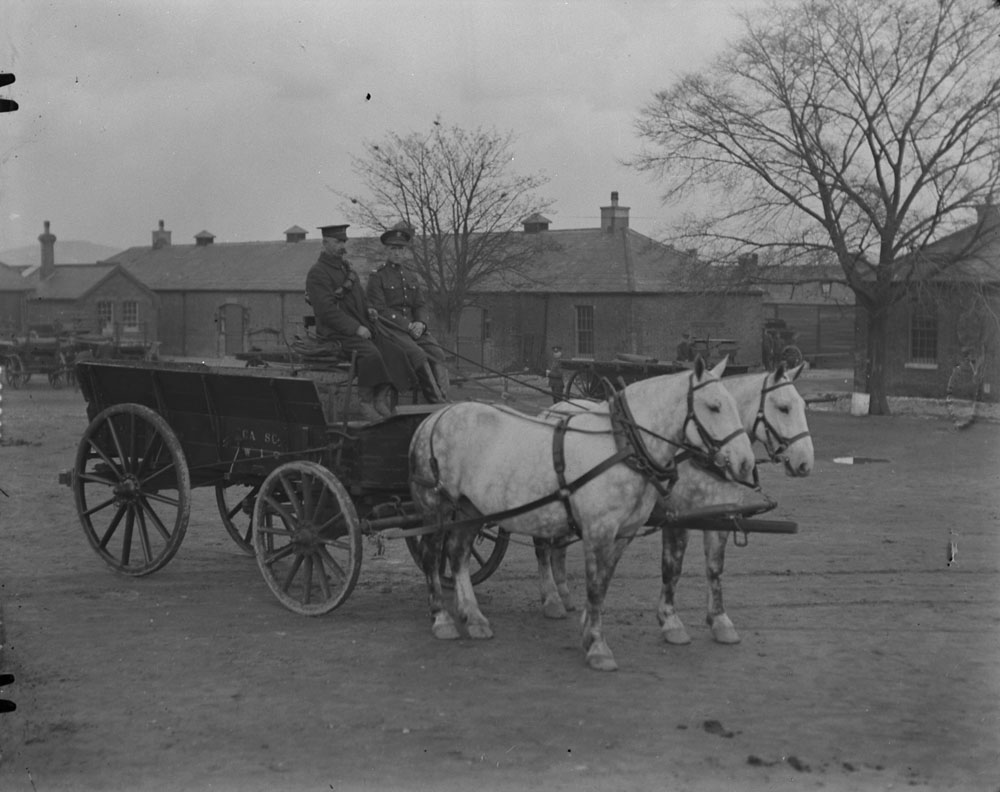Military History as Agricultural History: The Importance of Interdisciplinary Approaches
9 October 2013 - 3:05pm
 In June 2013 I had the privilege to present a paper at the Agricultural History Society conference in Banff, Alberta. The impressive breadth of subject matter and the range of papers being presented imparted to me not only how far-reaching agricultural history is, but also its utility in a number of other historical disciplines. My own studies in Canadian and military history often incorporate aspects of agricultural studies, but after this conference it is apparent to me how agriculture can be much more forcefully accentuated in the history classroom.
In June 2013 I had the privilege to present a paper at the Agricultural History Society conference in Banff, Alberta. The impressive breadth of subject matter and the range of papers being presented imparted to me not only how far-reaching agricultural history is, but also its utility in a number of other historical disciplines. My own studies in Canadian and military history often incorporate aspects of agricultural studies, but after this conference it is apparent to me how agriculture can be much more forcefully accentuated in the history classroom.
Agriculture is intrinsically tied to military history, though it often receives less attention than other factors such as combat, high command, and military technology. While teaching my first course this spring at the University of Calgary on the First World War, I attempted to impart the monumental effects agriculture played though the war to my students. For example, the excessive reliance of pre-war agricultural imports into Imperial Germany created massive problems for the German government throughout the Great War, as a restrictive British naval and economic blockade forced the German people to look inwards for agricultural production. The plight of the German people varied considerably between rural and urban areas, with many farmers and their families living in relative comfort through the war. Farmers could eat their produce, barter with other farmers, or sell it on the pervasive black market if the state was not willing to pay enough for agricultural goods. On the other hand, civilians in cities faced long bread lines and malnutrition as there was simply not enough food to go around. During the winter of 1916-17, the turnip became a staple of the German diet – boiled, fried, baked, pounded into flour, and heated for ersatz (substitute) coffee. The blockade alone did not cause German defeat, but it did contribute to over 770,000 premature deaths over the course of the Great War. These agricultural problems were a key component of the German war effort, and are as important to consider as grand strategy and military tactics when teaching about the First World War.
My own research on the Canadian Army Veterinary Corps (CAVC) in the First World War similarly contains inherently agricultural facets.Acquiring horses, transporting them, feeding them, caring for them, and selling them off at the war’s end meant that the Canadian Army was a pseudo-agricultural organization until the proliferation of motor vehicles during the interwar period. The other papers on my panel discussed horses in both the late nineteenth century United States as well as twentieth century Scandinavia,and it became apparent to me that studying these animals in the Great War was a mere fraction of their overall importance to human history even in the past century.
In sum, I would assert that it is difficult – if not impossible – to separate military history from agricultural history. Agriculture in the form of food and animal production was crucial to the prosecution of the First World War, and war itself proved to be a driving force in agricultural changes through the twentieth century. It is important in the history classroom (at any level) to accentuate cross-disciplinary approaches, and emphasize that studying any one facet of history independent of the other is only telling part of the story.
How do you incorporate agricultural history in your history lessons?
Photo:Canadian draught horses hitched to a General Service Wagon in Shorncliffe, England, during the Great War. Libraries and Archives Canada Online MIKAN No. 3395677. Copyright expired.
- Se connecter ou créer un compte pour soumettre des commentaires

